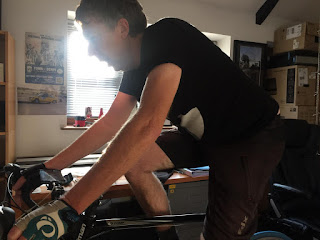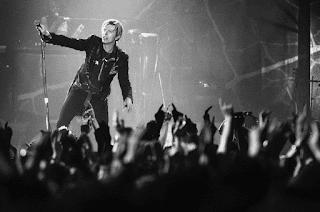One year on. A poignant anniversary, but one I didn’t think I would see.
No lyrics today. A moment of quiet reflection instead.
It’s 12 months to the day since I went to see my GP as I was feeling exhausted and thought I might need a couple of weeks of anti depressants. Little did I think or know that I wouldn’t be working for the next year as clinical depression well and truly took hold.
Before I reflect on those 12 months and try to share a few thoughts and hopefully, some useful pointers, it is also 12 months to the day that another man, who was a husband and a father to two children, died in the exact spot and in the same way, that I had planned after my first suicide attempt failed. The coroner reached an open verdict on the poor man. Despite him having left a note, the way he died could not be 100% proven to be deliberate. He hadn’t tried to access his GP, never mind mental health services, but reading the inquest report in the paper later this year, it was, to me at least, clear what plan he had had. I’d chosen that spot and that method as it would likely lead to an open verdict and mean there was no ‘stigma’ for my family to live with. That was how I was thinking for a large part of last year. Writing it now thankfully doesn’t make sense, but boy it did at the time of being so ill that it felt the only solution.
Today I spent nearly two hours on my bike, riding up a mountain on Zwift. Cycling has played, alongside the support of family and friends ( many online ones too), in helping me get to a better place now. Initially it was taking part in Paul O’Neill’s #pedalwithpaul challenge for Halton Haven Hospice. Cycling 25 miles a day on my static trainer. I passed many an hour listening to David Millar and Ned Boulting’s various podcasts, whilst thinking nothing other than to keep turning the pedals. I couldn’t go out cycling as the risk that I wouldn’t return were pretty huge at the time. Whilst I wasn’t always actively suicidal, the times I wasn’t, I was busy planning how to die. The cycling challenge bought me time.
I’d love to join Paul and the team on their latest challenge, riding from London to Paris to raise much needed funds for the hospice, but I know this year will just be a bit too soon to spend time away, when at the moment I’m still not confident in my mental health to be able to go out on the roads round home, let alone cycle hundreds of miles in a foreign country with a bunch certifiable, but affable, loons!
I’ve documented in detail how mental health services failed to help me. Some of that I prefer not to remember and to focus on the here and now. Suffice to say, it took from attempting suicide at Easter, until September 3rd to be assessed, at which point I was immediately transferred to the mental health crisis service and offered an inpatient bed throughout the five weeks the service worked with me and my wife to keep me alive. Getting the right care and treatment was a huge battle. It should never ever be like that, regardless of whether you are mentally ill, have a broken limb or a life threatening physical illness.
I knew the first line of treatment I needed was a mix of different anti depressants and importantly, some sedatives. We fought tooth and nail to finally get these prescribed. My biggest worry switched from wanting to die, to spending all my time either in bed or lying down and fearing I’d put on a lot of weight. This fear was borne out as I put on over 8kg in just under two months.
With the support of some great friends who were former colleagues, I pulled together a proposal for an intervention that I thought could help me and make a huge difference to my physical health and mental health. After very positive and constructive discussions with my local mental health trust, the plan was agreed and a personal coach was commissioned to work with me for three sessions a week for three months. Alongside this, a different form of coaching would also be delivered through TEWV’s ThinkOn programme, to help me identify goals and how I could reach them.
I now spend three hour long sessions a week with Tristan Eaglen Coaching, who has devised a programme to teach me a host of weight lifting disciplines along with a multitude of strength and balance exercises. The programme also includes cycling, which I do every day. I’m keeping a daily mood diary, and regularly measuring my blood pressure, weight and stomach circumference. The data will help inform the case study and subsequent written report, which I hope will provide a strong evidence base.
Today’s tale of the tape shows I’m now just 3kgs heavier than the day I commenced on Mirtazapine, when I was pretty much at the weight I’d always been in my 30’s. I’ve lost 12 centimetres off my stomach circumference in the six weeks of physical coaching and am starting to hit personal bests in each lifting session.
More telling though isn’t the strength and fitness of my body from the programme and medication, it’s the growing strength and resilience of my mental health.
This week I spent two hours in a online meeting with senior management of TEWV mental health NHS trust. It was a special interest group, working on a strand of TEWV’s new strategy for the next five years. Whilst we encountered some massive gaps and issues with their services on my journey and course of mental illness, I want to use those experiences to try to stop the same thing happening to others. Whilst I’d definitely not recommend developing clinical depression to give yourself a life check and to reset your priorities, if there are positives to draw on, it’s that my passion to work with like minded individuals in improving mental health has been reignited.
It’s very early days still in my recovery, I’m conscious that these are still small steps, six weeks ago I was again at rock bottom and needed my meds increasing. But I know I’m functioning better, I’m feeling more able to think beyond the next hour. My wife has been able to go out without worrying what I might do if left alone. I’m slowly becoming a bit more eloquent and able to structure plans, thoughts and even simple stuff such as stringing sentences together without massive pauses when brain fog would leave me struggling to remember what I meant to say.
I’ve been aware that I’m starting to be more pro active in reaching out and contacting people again, rather than hoping they might message me. There’s a lot of people out there on social media who have hearts of gold and who have been there when I’ve been at my lowest, I hope to now be in a position to give a little back.
So what do I think I’ve learned so far? These are only my observations on my journey, none of it is in anyway remarkable or unique, which in many ways is truly frightening. Remember that old phrase Parity of Esteem? Mental health service provision isn’t getting any more prevalent and accessible is it.
A few thoughts:
Going to see my GP was a relief and something in hindsight I should have done earlier, but didn’t realise how drained I was until having a break from work over Xmas. If you are working 7 days a week and your to do lists are getting longer each day, rather than shorter, stop. Have a break. Speak to people, share your concerns with a partner, a friend and/ or a colleague, they may help you see a solution.
Take time off. I thought the solution to an ever increasing workload was just to work longer and longer hours. This is so unhealthy. Don’t do it, it won’t be the solution and you are likely to make bad decisions.
Make time for family and friends you value and who value you. Tell them how much they mean to you. Don’t be afraid to tell them if you feel you are struggling. They will be relieved and likely able to help, no matter how hopeless it may feel to you. If they choose to desert you when you are feeling low, then it’s time to question if you need them in your life? Most people will react with care, love and concern. There’s a lot of good people out there.
Never underestimate the benefit of exercise. I’ve always loved sport, but due to working long hours, had slipped into being a spectator rather than participating. It’s amazing how just a brisk walk with a loved one or friend can clear the mind.
And finally, if you think you know what might help you to feel better, don’t be afraid to stand your ground and make a case for it. The vast majority of practitioners who I’ve encountered on my own journey so far have been extremely supportive when I’ve set them challenges to access the interventions I believed would help.
Can’t finish this one without a massive thank you to all friends, online and in person, who have been there through thin and thinner. And as for my family, well they make me so proud in how they’ve challenged me, supported me and stuck by me.




Comments
Post a Comment